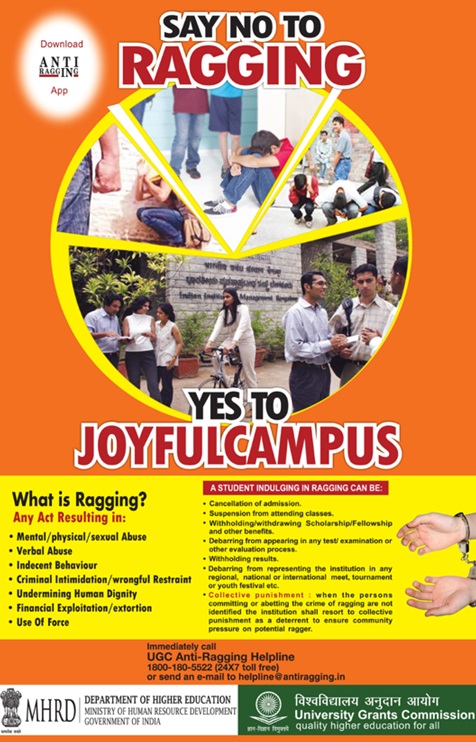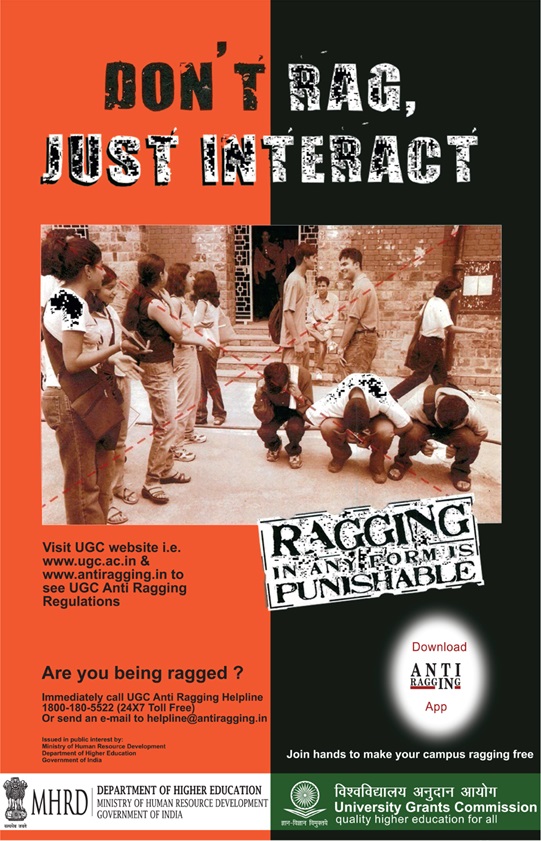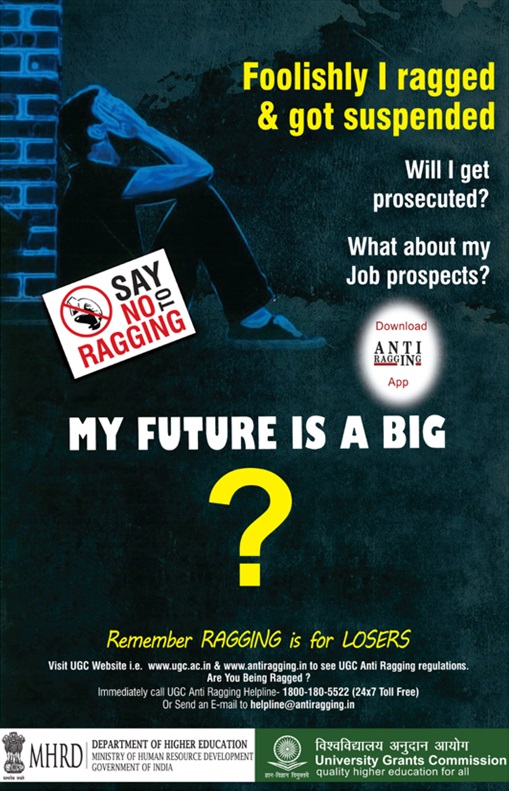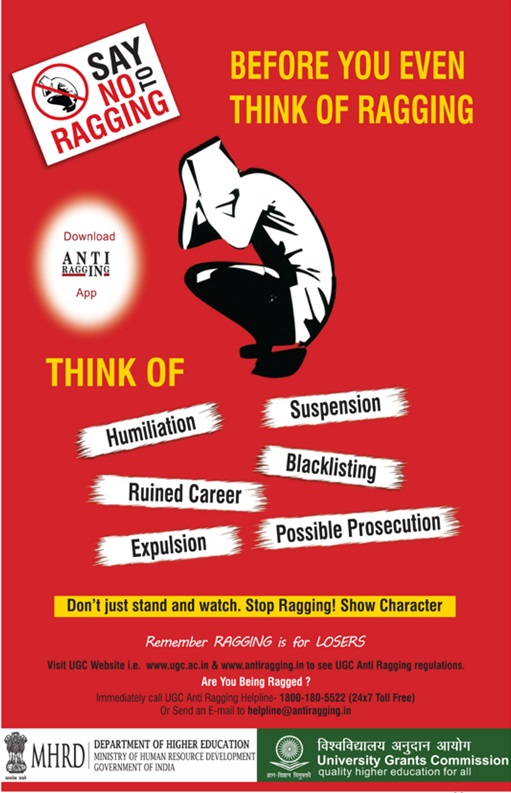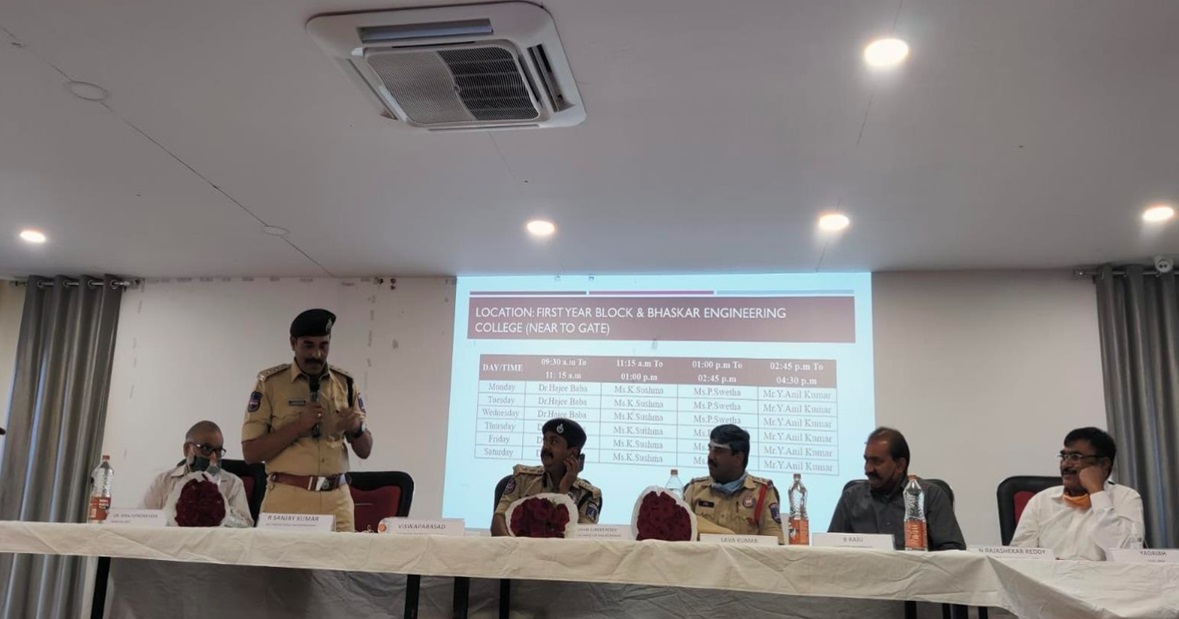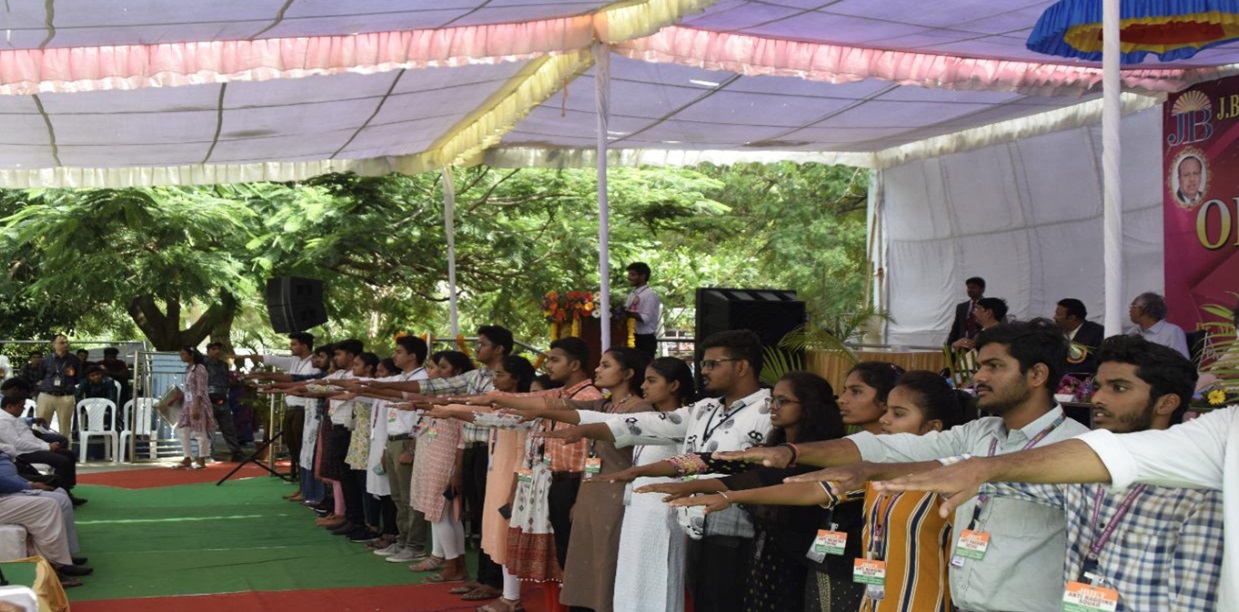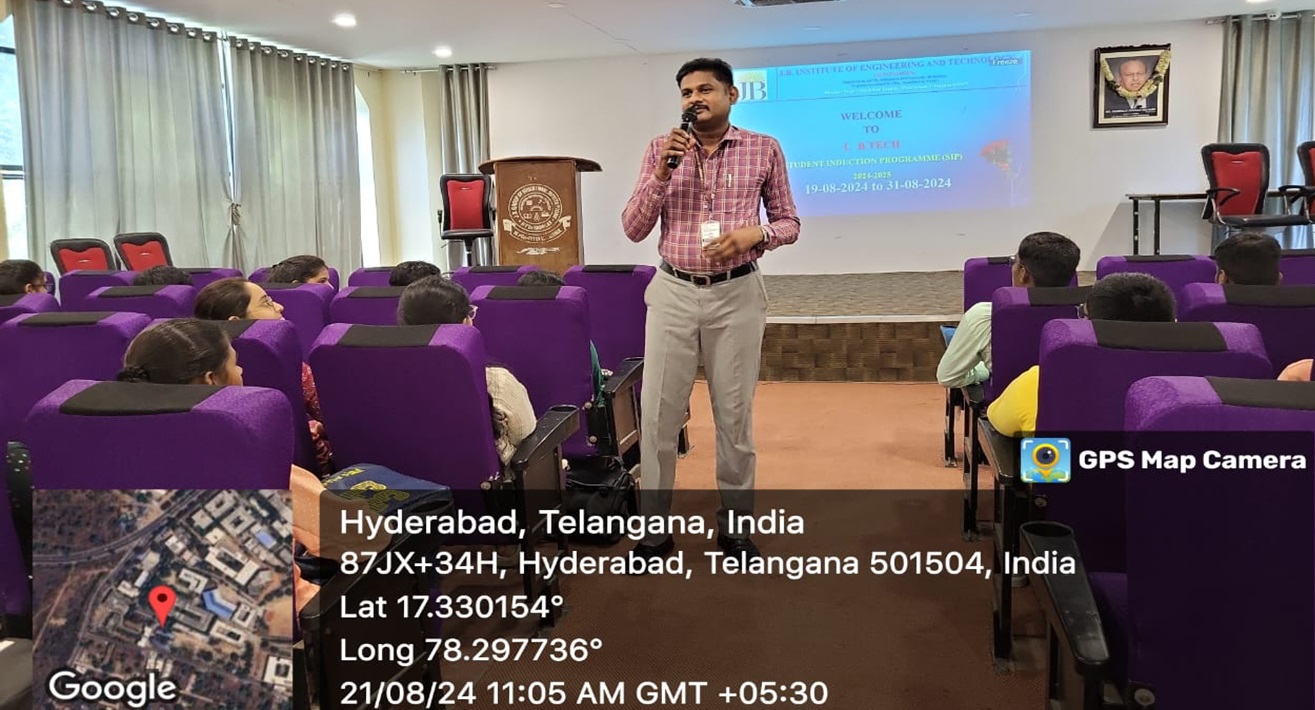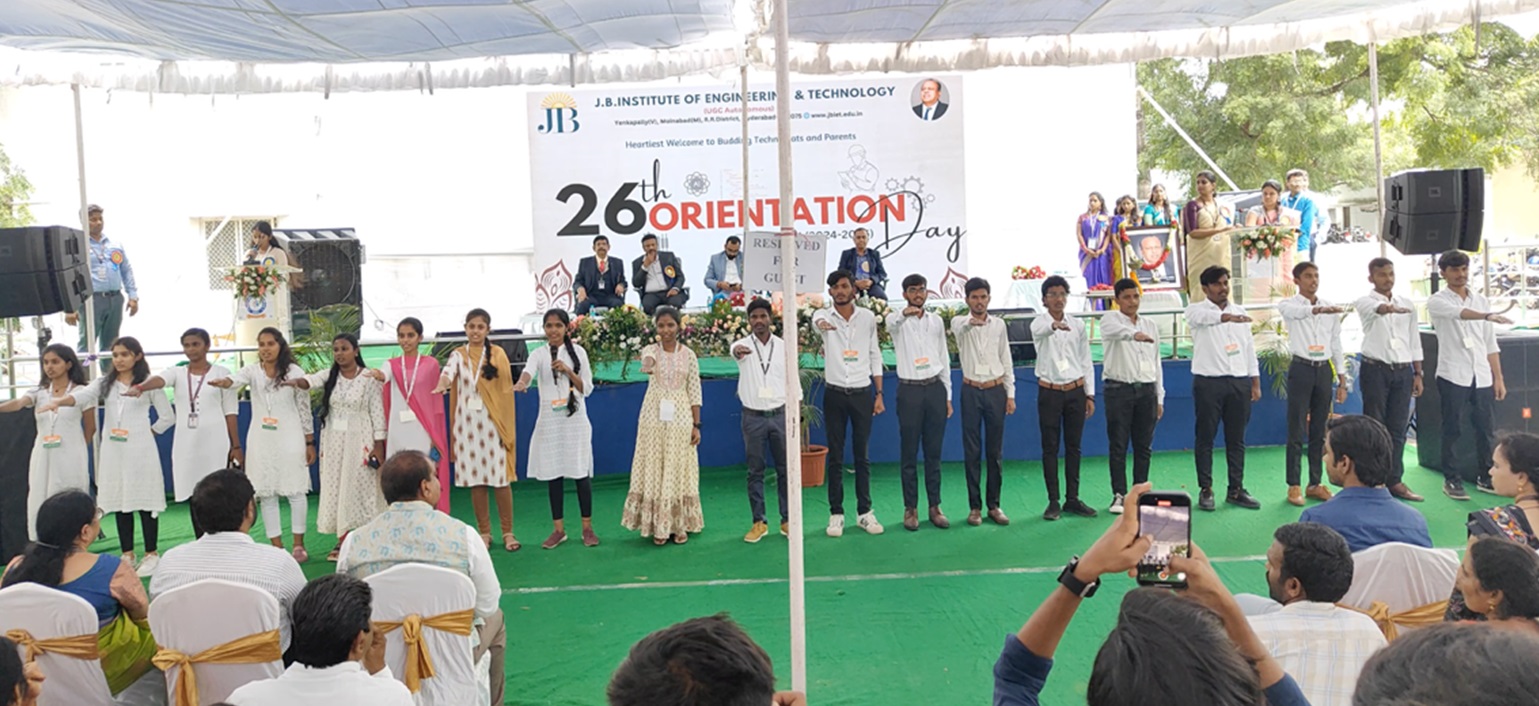Anti Ragging Cell
In alignment with Supreme Court judgments, UGC guidelines, and State Government instructions, J.B. Institute of Engineering and Technology adheres to a ‘Zero-Tolerance Policy’ toward ragging.
VISION: To cultivate a ragging-free environment by promoting democratic values, tolerance, empathy, compassion, and sensitivity, ensuring that students develop into responsible citizens.
MISSION: To establish a disciplined atmosphere by clearly communicating that ragging will not be tolerated on college premises.
OBJECTIVES:
- To prohibit any conduct by students, whether verbal or written, that teases, mistreats, or handles a fresher or any other student with rudeness.
- To increase awareness among students about the consequences of ragging.
- To maintain vigilant supervision to prevent ragging incidents.
- To address ragging issues promptly and take action as advised by the committee.
ANTI-RAGGING POLICY: As per the UGC Regulation on Curbing the Menace of Ragging in Higher Institutions, 2009, ragging includes, but is not limited to:
- Any conduct by students, whether verbal or written, that results in teasing, mistreating, or handling a fresher or any student rudely.
- Participation in rowdy or undisciplined activities that cause or are likely to cause annoyance, hardship, physical or psychological harm, or fear to a fresher or any other student.
- Coercing a student into acts they would not ordinarily perform, leading to shame, torment, or embarrassment, affecting their physical or psychological well-being.
- Acts by senior students that disrupt or disturb the regular academic activities of any student or fresher.
- Exploiting fresher or other students for personal academic tasks.
- Financial extortion or forced expenditures imposed on any student.
- Physical abuse, including sexual abuse, homosexual assaults, stripping, obscene acts, bodily harm, or any danger to health or person.
Verbal, email, or public abuse, deriving pleasure from participating in the distress of a fresher or any student.
- Physical or mental abuse (including bullying and exclusion) targeted at students based on colour, race, religion, caste, ethnicity, gender, sexual orientation, appearance, nationality, regional origins, linguistic identity, place of birth, residence, or economic background.
ANTI-RAGGING MECHANISM: The following mechanisms are in place to ensure a ragging-free campus:
- Wide dissemination of the anti-ragging policy and warnings through admission advertisements, prospectus, and other information booklets.
- Obtaining signed undertakings from students and parents against ragging.
- Assurance from the Head of Institution/Departments to freshers and parents about full protection and support against ragging.
- Introducing the anti-ragging policy and warnings to seniors through holistic education classes.
- Formation of an anti-ragging committee and squad, with vigilance at vulnerable locations.
- Regular interactions and counselling with students to detect early signs of ragging.
- Surprise inspections of hostels, student accommodations, canteens, rest-cum-recreation rooms, and toilets.
- Installation of CCTV cameras at critical points.
- Providing orientation, mentoring, and professional counselling to freshers.
- Updated information on the college website with contact details of nodal officers related to the anti-ragging committee.
- Creating awareness about the National Anti-Ragging Helpline:
1800-180-5522 (24x7 Toll Free) and e-mail: helpline@antiragging.in
e-mail (JNTUH): antiragginghelpline@jntuh.ac.in
e-mail (JBIET): jbietantiraggingcell@jbiet.edu.in
PUNISHMENTS: Ragging is a cognizable offence and attracts the following punishments under the Prohibition of Ragging Act (1997):
- Teasing or humiliating a student: Imprisonment up to six months or a fine up to ₹1,000 or both.
- Assaulting or intimidating a student: Imprisonment up to one year or a fine up to ₹2,000 or both.
- Causing hurt to a student: Imprisonment up to two years or a fine up to ₹5,000 or both.
- Causing grievous hurt, kidnapping, rape, or unnatural offences: Imprisonment up to five years and a fine up to ₹10,000.
- Causing death or abetting suicide: Imprisonment for life or up to ten years and a fine up to ₹50,000.
- A student convicted and imprisoned for a term shall be dismissed from the institution.
- A student convicted and imprisoned for more than six months shall be barred from admission to any other educational institution.
POWERS AND FUNCTIONS: ANTI-RAGGING CELL:
- To uphold and comply with Supreme Court directions and be vigilant against ragging.
- To publicize the directives and actions against ragging.
- To review complaints, conduct inquiries, and report to the Anti-Ragging Committee with recommendations for action.
- To oversee the procedure for obtaining student undertakings.
- To conduct anti-ragging workshops and orientation sessions.
- To provide contact details of personnel for receiving complaints/distress calls.
- To offer counselling services and raise awareness.
- To implement measures for preventing ragging on campus.





